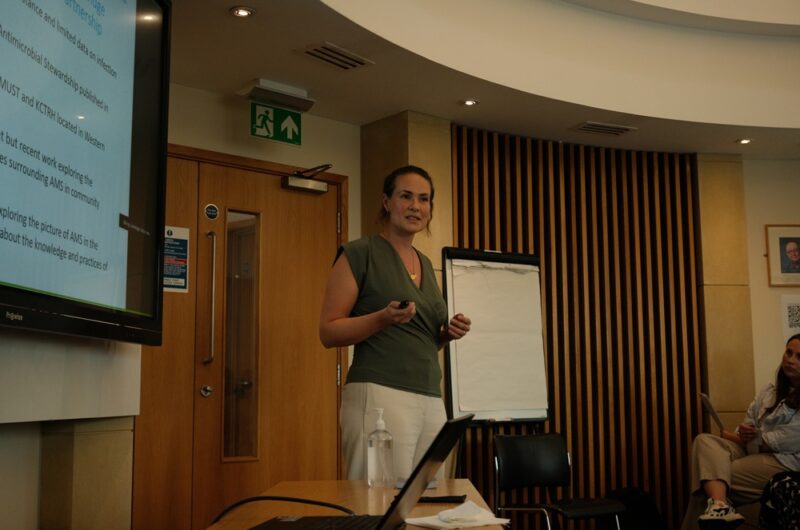By Susie Langtree
CGHP East of England Global Health Fellow and GP Registrar Susie Langtree describes her involvement in a community antimicrobial stewardship project in Kenya, and her role in demonstrating the wide scope of global health and its relevance to resident doctors in the UK.
“During my fellowship I have had the opportunity to get involved in a broad range of activities from designing a study focused on antimicrobial stewardship in the community in Kakamega to delivering global health teaching to both foundation doctors and GP registrars focused on the broad and diverse field of global health.
The teaching sessions were delivered as part of the East of England Foundation Trainees’ annual teaching hub and as part of the weekly GP registrar curriculum for the Cambridge scheme. These are doctors at the beginning of their careers and our sessions were designed to spark curiosity, build knowledge, and encourage thoughtful reflection on what it means to be a globally minded doctor in the 21st Century and how they can get more involved.
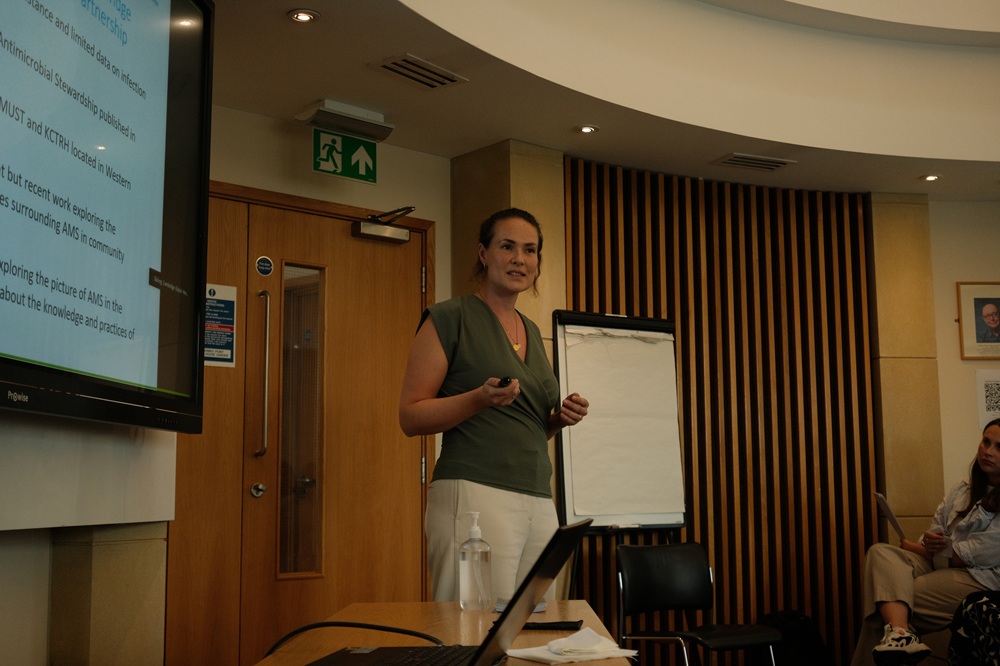
Ethics and relevancy of global health
One of our key goals was to demonstrate the wide scope of global health and its relevance for resident doctors today. It’s a field that goes far beyond tropical medicine—although that remains an important aspect. We explored the management of chronic diseases in resource-limited settings, where access to basic medications and diagnostics can be profoundly different from what trainees are used to in high-income countries. The sessions also addressed the growing impact of climate change on health systems worldwide (including our own), and particularly how environmental degradation disproportionately affects lower-income countries. We also explored inequity in access to healthcare here in the UK for different patient groups: this is particularly relevant for GPs who develop local knowledge of their population and provide healthcare for that specific population.
Central to the programme was a discussion of ethics in global health. We encouraged participants to critically examine questions around volunteering, short-term placements, and research in lower-middle-income countries. Who benefits? Who decides the priorities? What does a respectful, sustainable partnership look like? How can you work in other countries ethically and what does this look like in Foundation Year 3? Using real-life case studies, we explored how global health efforts must be grounded in mutual respect, equity and long-term collaboration. We highlighted the importance of working alongside local colleagues to strengthen health systems in a way that’s aligned with their priorities.
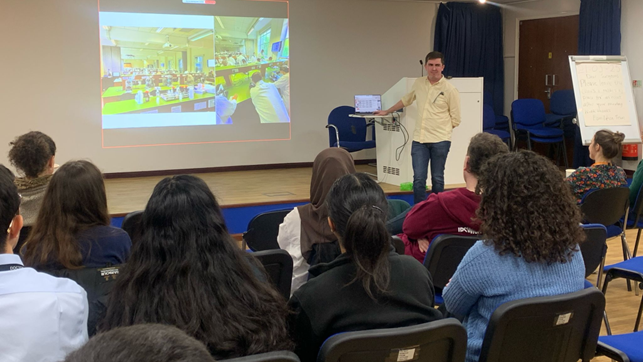
The many roles and skillsets involved
For many trainees, the most interesting part of the day was the practical guidance on how to get involved in global health. Often there is a stereotype that only tropical medicine specialists or surgeons can get involved but this is very much not the case!! We ran workshops and teaching sessions exploring opportunities across clinical work, teaching, public health and research. Whether it’s participating in an academic project on health systems in sub-Saharan Africa, working with a global health NGO, or contributing to international teaching and capacity-building, we emphasised that there is no one-size-fits-all path. Trainees were encouraged to think about their own skills and passions—whether that’s data analysis, health education, policy development or frontline care—and how these could be valuable in a global context. We also signposted fellowships, scholarships and mentorship opportunities to support those who want to take their first steps into the field.
As educators, we were inspired by the engagement and curiosity of the participants. Many expressed a desire to delve deeper into global health, not just as an optional extra, but as an integral part of their future careers. A group of GP trainees expressed an interest in “the virtual classroom” programme where family medicine doctors in the UK and in another country, e.g. Ukraine or Kenya, are partnered and set up regular virtual meetings to provide bi-directional teaching, cross collaboration and teaching.
Community antimicrobial stewardship in Kakamega
For the international phase of my fellowship I’ve been working with the Kakamega Cambridge Health Partnership, focusing on antimicrobial stewardship (AMS). Antimicrobial resistance (AMR) poses a growing threat to global public health, and Kenya is no exception. As AMR becomes more prevalent, addressing it through effective AMS is critical. AMS involves a series of measures aimed at promoting the responsible use of antibiotics, ensuring that they are prescribed, dispensed and used appropriately.
While much of the focus has been on urban hospitals and clinics, rural community pharmacies in Kenya play a vital role in healthcare delivery. These pharmacies often serve as the first point of contact for patients seeking treatment for common ailments, including infections. Previous CGHP Global Health Fellow Ugonna Nwankpa started excellent work in this area last year and our project builds on her work, collecting data on antibiotics dispensed either through prescriptions or over-the-counter sale in community pharmacies in Kakamega.
Working with an international, multidisciplinary team on this antimicrobial stewardship project is hugely rewarding. Getting to know colleagues from diverse cultural and professional backgrounds, who each bring unique perspectives and expertise to the table has been a brilliant experience.
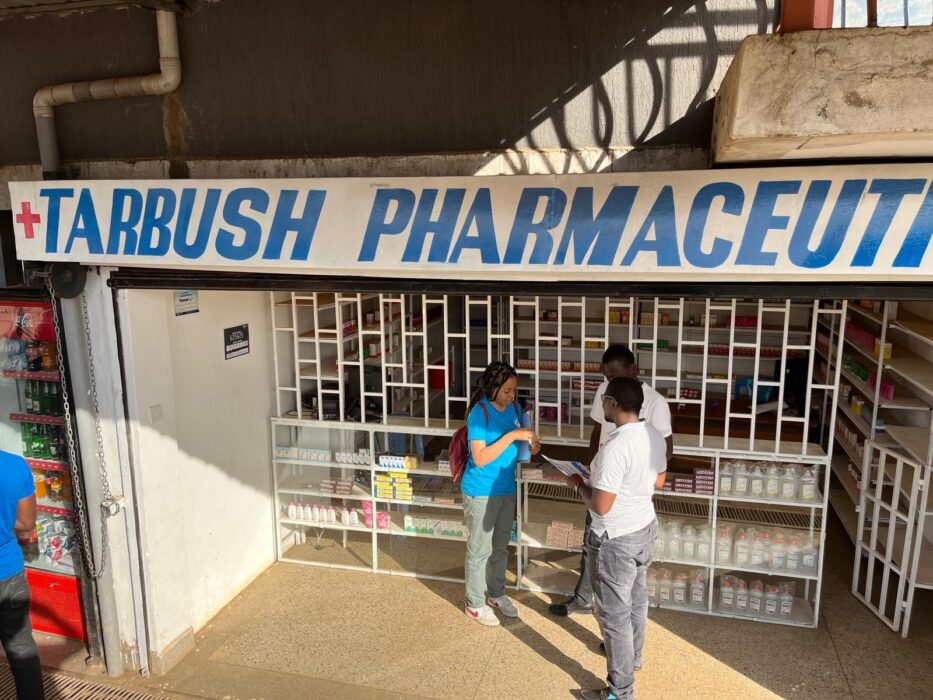
Collecting community data
Community pharmacies are the backbone of healthcare in many areas of Kenya, where access to government-run health facilities can be limited. These pharmacies typically offer over-the-counter medications, including antibiotics, for a variety of common conditions as well as dispensing antibiotics from prescriptions issued in the community. However, the informal nature of some of these transactions, combined with limited resources for monitoring and educating patients about AMS presents challenges, and limited access to treatment guidelines mean that AMR is a real concern.
We were delighted to receive an additional grant from the Commonwealth Partnership for Antimicrobial Stewardship (CwPAMS) to support our project. We designed a data collection tool looking at antibiotics dispensed from these pharmacies over a five-day period and have run a pilot audit to assess the feasibility of this tool. This had positive results and we are now proceeding to a second, larger study, collecting data from 30 pharmacies in Kakamega which we hope to commence in July. We have planned a visit in August to get feedback on our results and use them to provide AMS training to local community pharmacies and local professional organisations.
Through my fellowship year I am gaining insights into different approaches to antimicrobial stewardship but also developing a range of transferable skills. I have honed my communication and teamwork abilities and built leadership skills—especially in coordinating efforts, managing tasks, email threads, Zoom calls and ensuring our project is progressing! Overall, this experience has significantly enhanced my confidence in working across disciplines and borders.”
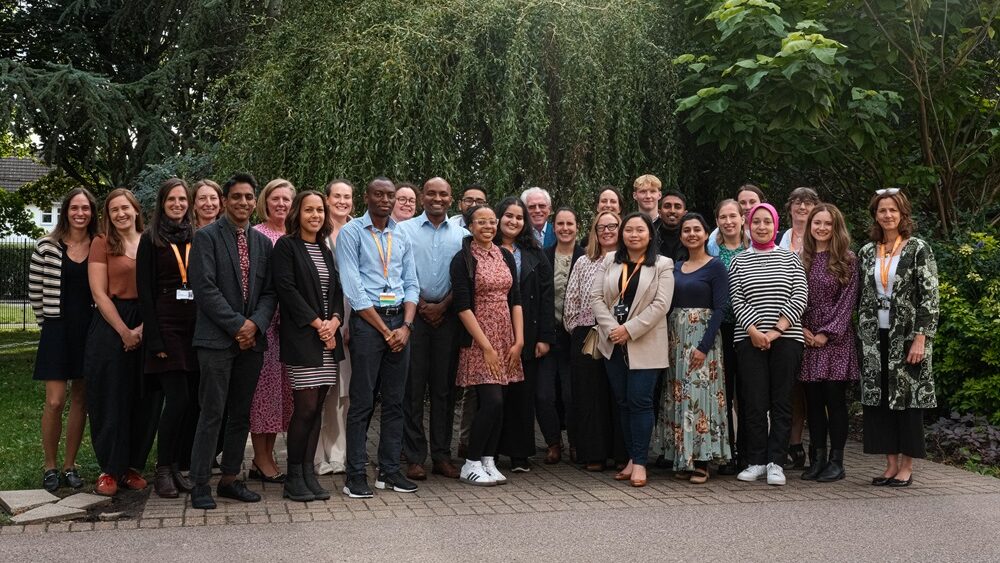
Find out more about the CGHP East of England Global Health Fellowships or contact us at info@cghp.org.uk
Return to blogs

